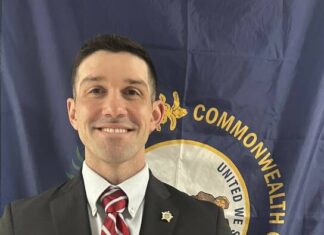There are lot of things that have come out of Washington over the past few years that have done more harm than good.
Partisan divisions have hardened to the point it’s almost impossible to reach across the aisle. One place progress had been made, happily, was in reforming the criminal justice system. Unfortunately, some people decided reform also meant the implementation of policies like “no cash” bail in places like Manhattan and Los Angeles, which keep bad people on the streets committing additional crimes instead of behind bars where they belong.
As a result, the reform movement has ground to a halt, even as there’s much real work still to be done. From the 1980s onward, national figures like then-Sen. Joe Biden, onetime chairman of the Senate Judiciary and principal author of the 1994 Crime Bill, decided minor crimes should be subject to major penalties. He and people like him who wanted to be president decided they needed to prove they were “tough on crime.” As a result, too many people went to prison for too long.
That doesn’t change because criminals who should be “sent away” now aren’t. We can make our communities safer without abandoning the drive for reform that began more than a decade ago out of a bipartisan desire to see old wrongs righted.
The cause of reform, for reasons previously mentioned, has become politically unpalatable. The Gallup organization says that in 2020, just 10 percent of Americans said they had “a great deal” of confidence in the criminal justice system. By 2021, that number dropped to 7 percent and by 2022 it was down to 4 percent.
Unless those numbers can be reversed, the inequities will remain and people who no longer deserve to be behind bars will remain there. People like Tadd Vassell, who at age 17 was arrested and charged with a series of non-violent drug offenses that, upon his conviction, earned him the equivalent of a life sentence.
Vassell’s been behind bars for 21 years. The 12 men arrested with him including the two principal defendants in the case (both were charged with crimes far more severe) are all out of prison. He’s become a model prisoner, helping others prepare for reintegration into society and helping them learn a trade so they can lead productive lives and stay on the right side of the law once they’re released.
Then there’s Ross Ulbricht, who created the controversial Silk Road peer-to-peer online marketplace. Developed to facilitate e-commerce transactions that could be conducted away from the prying eyes of the government, it became popular, especially with libertarian-leaning types who thought what they bought and sold was none of the government’s business.
The government, as is probably no surprise, objected to that, specifically because certain features of the Silk Road site attracted the business of people selling drugs and other illicit products. In 2013, the FBI arrested Ulbricht and shut the website down.
The prosecution chose to make an example of him, charging him with a handful of crimes connected to transactions conducted on his site to which he was not a party. Upon his conviction, he was sentenced to two life terms in prison plus 40 years without the possibility of parole.
The judge in the case intended for Ulbricht to die in prison, but was that because he committed heinous crimes or to make him an example to others under federal investigation? When informed of the facts, most people would wonder and, if they thought the latter was true, be outraged.
That’s not exactly an example of equal justice under the law and, if true, would further validate the public’s increasing distrust in the criminal justice system.
Meanwhile, public opinion on non-violent drug offenses is shifting. People who did far worse than either Vassell or Ulbricht have received sentences that were far less severe, or had their sentences commuted or received presidential pardons. Yet, because the forward progress on criminal justice reform has stalled out, Vassell and Ulbricht and people like them continue to languish behind bars.
President Biden has an opportunity to give the effort some gas, and in doing so keep a promise he made to the voters. Vassell and Ulbricht deserve executive clemency and should get it as part of a larger effort to ensure that going forward the sentence always fits the crime.






